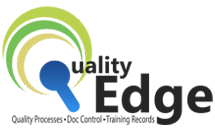
- Home
- Solutions
- Quality Processes
- Change Control
- Deviation
- Investigation
- CAPA Management Software
- Market Complaint
- Document Control
- SOP
- Protocol
- Work Instruction
- Specification
- Controlled Copy Release (Doc Issuance)
- Electronic Training Records
- eLearning
- Training Records Management
- Training Scheduling
- Product Quality Review (PQR)
- Vendor Quality
- Bundled Packages
- Resources
- About
- Contact us
Best Practices for Training Management in Pharma: Ensuring Compliance and Skill Development
Training Management in Pharma: Best Practices to Boost Compliance and Skills
Managing training in a pharmaceutical company is no easy task. From regulatory demands to role-specific learning, the stakes are high. A misstep in training can result in compliance issues, audit failures, or even compromised product quality. That’s why Training Management in Pharma requires a strategic approach, combining technology, processes, and continuous improvement.
Understanding the Training Challenge
Pharma companies face unique challenges when it comes to workforce training:
Employees with diverse responsibilities—from QC to production—require tailored learning paths
Regulatory audits demand precise records and evidence of competency
Frequent updates in SOPs and guidelines must reach staff quickly
Manual tracking and spreadsheets can lead to errors and inefficiencies
In short, unstructured training isn’t just inconvenient—it’s risky.
Core Principles for Effective Training Management in Pharma
To overcome these challenges, here are some best practices to follow:
Define Clear Learning Objectives
Every training session should have measurable goals. Are you teaching GMP compliance, equipment operation, or safety protocols? Clear objectives make assessment and audits easier.
Leverage a Centralised Training System
A digital Training Management in Pharma solution consolidates courses, schedules, and records in one place. This ensures consistency across departments and sites.
Role-Based Training Paths
Not every employee needs every course. Design learning paths based on roles to improve relevance and engagement. For example, lab technicians need analytical method training, while production staff need process control knowledge.
Regularly Update Content
Guidelines, SOPs, and compliance requirements evolve constantly. Updating training content promptly ensures employees are always current.
Use Interactive Learning Methods
Beyond reading manuals, employees benefit from videos, simulations, and quizzes. Interactive learning improves retention and engagement.
Monitor Progress with Analytics
Tracking completion rates, quiz scores, and certification status helps identify gaps before audits. Analytics also support continuous improvement initiatives.
Prepare for Audits in Advance
Ensure your system generates audit-ready reports, showing who has completed training, when, and with what results. Digital records simplify compliance and reduce last-minute stress.
The Benefits of Following These Practices
Implementing structured Training Management in Pharma processes delivers tangible benefits:
Improved Compliance: Reduces regulatory risk with clear, traceable training evidence.
Time Savings: Automates scheduling, reminders, and record-keeping.
Enhanced Employee Competence: Employees gain the skills they need when they need them.
Higher Engagement: Interactive and role-specific training motivates staff to participate actively.
Audit Readiness: Simplifies regulatory inspections and internal audits.
Real-World Example
Consider a pharmaceutical manufacturer struggling with inconsistent training records. By implementing a centralised Training Management in Pharma system and following best practices:
Training completion rates increased by 45%
Time spent on administrative tracking dropped by 60%
Audit readiness improved, with regulators noting the clarity and completeness of training records
This example shows how best practices combined with the right system can transform training from a compliance headache into a strategic advantage.
Moving Forward
The future of Training Management in Pharma is digital and proactive. AI-driven recommendations, mobile learning, and integrated dashboards make training more accessible and adaptive. Companies that embrace these tools will not only remain compliant but also foster a more skilled, agile workforce ready for evolving industry demands.
Effective Training Management in Pharma is about more than completing courses—it’s about creating a workforce that is competent, compliant, and confident. By following structured best practices, leveraging technology, and keeping content current, pharma companies can turn training into a powerful business asset rather than a regulatory burden.
QEdge Quality Management Software Suite
Contact Us
6th Floor, Arista, 100 Feet Anand Nagar Rd, Jodhpur Village, Ahmedabad, Gujarat 380015
Phone : +91-79-66214899
Email: sarjen@sarjen.com


